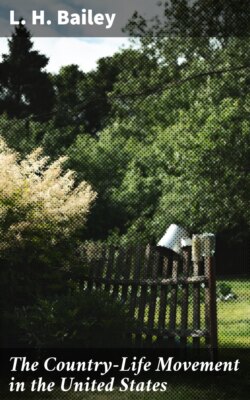Читать книгу The Country-Life Movement in the United States - L. H. Bailey - Страница 20
На сайте Литреса книга снята с продажи.
Sending the surplus population to the country.
ОглавлениеTable of Contents
It is also proposed to send to the country the poor-to-do and the dissatisfied and the unemployed. This is very doubtful policy. In the first place, the presumption is that a person who does not do well or is much dissatisfied in the town would not do well in the country. In the second place, the country does not need him. We may need more farm labor, as we need more of all kinds of labor, but in the long run this labor should be produced mostly in the country and kept there by a profitable and attractive rural life. The city should not be expected permanently to supply it. The labor that the city can supply with profit to country districts is the very labor that is good enough for the city to keep.
The relief of cities, if relief is to be secured, must lie in the evolution of the entire situation, and not merely in sending the surplus population into the country.
In my opinion, the present back-to-the-farm cry is for the most part unscientific and unsound, as a corrective of social ills. It rests largely on the assumption that one solution of city congestion is to send people away from itself to the open country, and on another assumption that "a little farm well tilled" will abundantly support a family. There is bound to be a strong reaction against much of the present agitation. We are to consider the welfare of the open country as well as that of the city itself. The open country needs more good farmers, whether they are country-bred or city-bred; but it cannot utilize or assimilate to any great extent the typical urban-minded man; and the farm is not a refuge.
